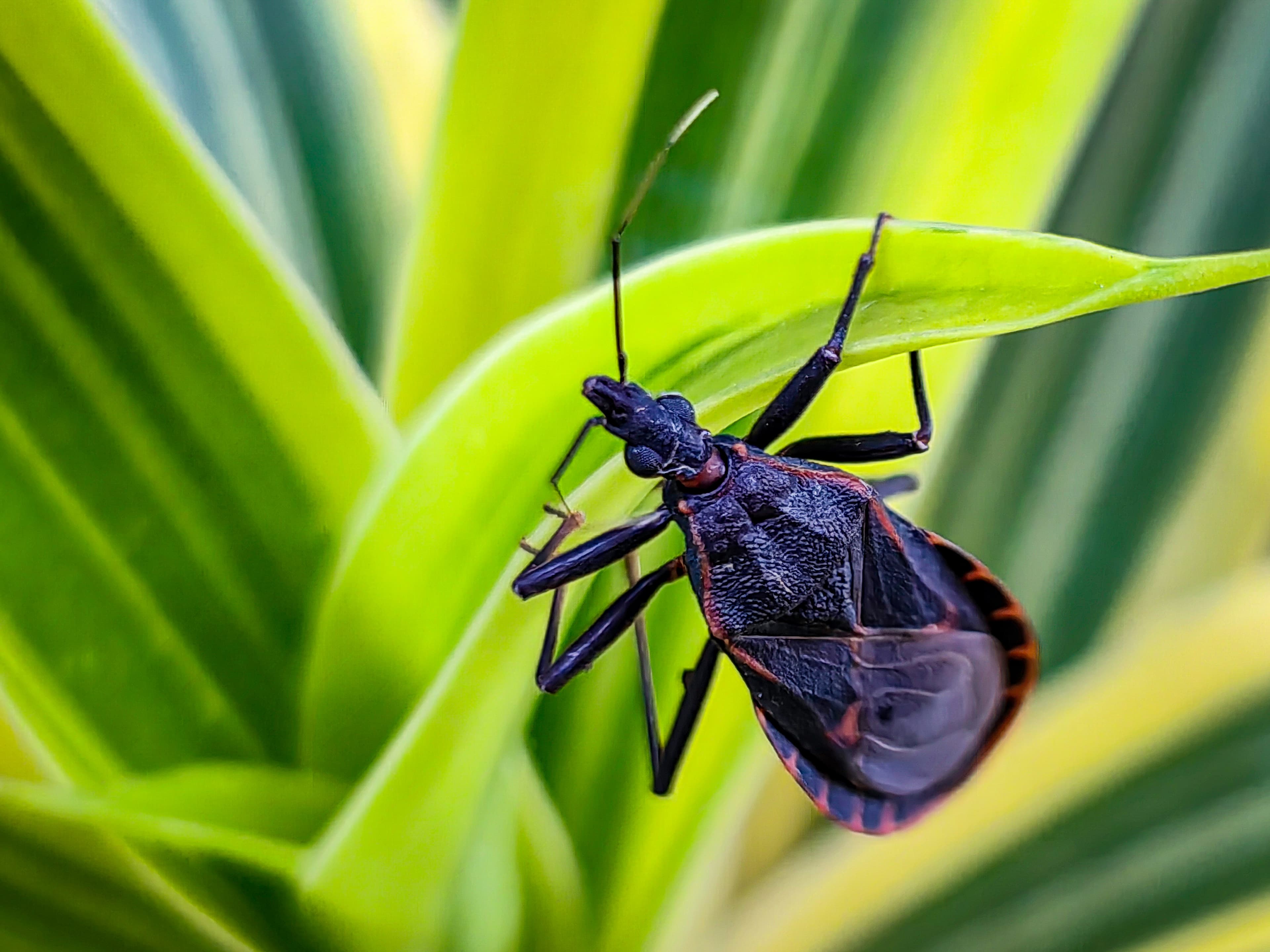Kissing Bug
Triatoma sanguisuga
Occasional InvadersTwo species exist in Tennessee: Triatoma sanguisuga and Triatoma lecticularia, but neither are commonly encountered. These dark insects are approximately 1 to 1-1/2 inches long with 12 yellow, red or orange bands around the edge of the abdomen. Head is cone-shaped with large eyes and beak-like mouthparts. Nocturnal blood feeders. Primary vector of Chagas disease protozoan, though disease is rare in Tennessee. Feed near animal nests.

Control Methods
Recommended methods for controlling this pest
| Method | Type | Effectiveness | Requirements |
|---|---|---|---|
| Kissing Bug Control | Chemical | Required |
Common Harborage Locations
Where to find this pest during inspections
| Location | Why Found There | Priority |
|---|---|---|
| Animal Nests & Burrows | Kissing bugs feed on blood of animals at night. Found near nests of rodents, opossums, raccoons. Also in chicken coops and dog houses. | Medium |
Important Disclaimer: The information provided in this knowledge base is for educational and reference purposes only. Pest management professionals should always consult current product labels, Safety Data Sheets (SDS), manufacturer instructions, and applicable local, state, and federal regulations as the definitive source of truth. Product formulations, application methods, safety requirements, and regulations may change over time. This information may be out of date and should not replace professional judgment, proper training, or required licensing and certifications.